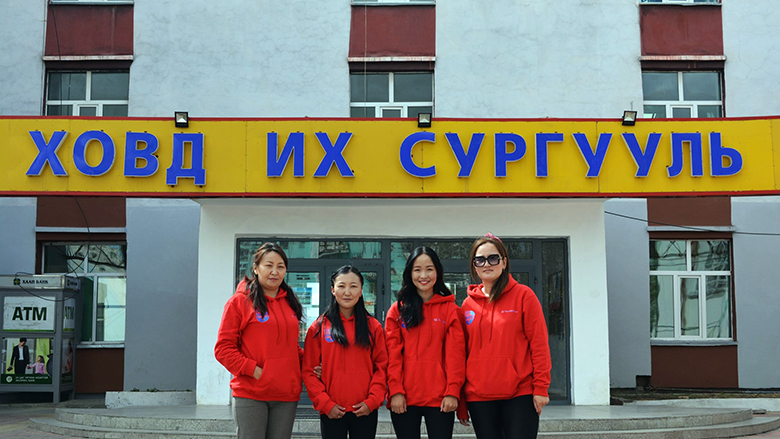Taking a hot shower may be something many take for granted, but for students in Khovd, one of the most remote provinces of Mongolia, it was a major challenge affecting their health, hygiene, and wellbeing.
“I lived in the dormitory without hot showers for two years. It was difficult, but no one really raised it as an issue before,” said Ts. Bolortuya, a student from Khovd University. “We didn’t like this fact at all, but somehow just accepted it and learned to live without [hot showers].”
Change started in 2019 when a group of students majoring in pedagogy came together to tackle this issue as part of a hackathon competition supported by the World Bank’s youth-focused Mainstreaming Social Accountability in Mongolia (MASAM) project.
According to the project’s baseline survey conducted in 2016, Mongolia’s “Generation Z” — youth aged 18-24 — were least likely to be engaged in public decision-making process. They were also least likely to provide their feedback on issues concerning themselves. The survey also highlighted a lack of knowledge on social accountability among the general population: people did not constructively engage in decision-making processes because they were not aware of concrete mechanisms and channels for raising their voices.
Getting to “hacktion”
To address this issue and empower youth, the World Bank helped engage university students through a hackathon competition to take matters into their own hands. The hackathon provided a platform where the students could work in teams to identify the most pressing issues concerning their health and design creative solutions using social accountability tools.
“We selected health issues as the topic of our hackathon as students are often excluded from local health services due to their temporary residency and poor awareness of their rights,” said Amarbayasgalan Dorj, Task Team Leader of the MASAM project. “Also, a long-lived stereotype that youth are healthy in general and should not complain about sicknesses makes the young generation stay away from regular checkups or public health insurance.”
To ensure equity of participation and include the students studying outside the capital city, the competition covered students of five provinces in addition to Ulaanbaatar city.
About 300 students from more than 20 universities participated in the hackathon. They presented 108 project pitches to address their pressing health challenges. Twelve teams were selected from the hackathon and given seed funds to implement their projects. With support and guidance from the MASAM project, they went on to implement innovative initiatives in their own communities.
“Based on previous experience, we mostly used social media to engage youth, as they are Generation Z and [have been] used to the internet since a young age,” said Ms. G.Bumchimeg, CEO of Mongolian Economic Analysis and Research Center (MeARC), an organization that worked on day-to-day implementation of the youth project.

